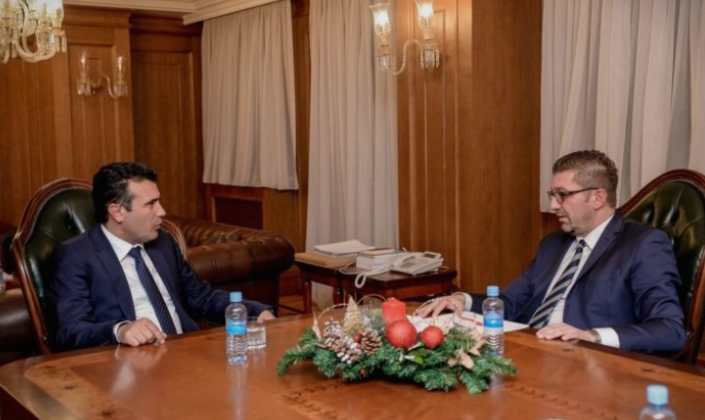Despite the near daily arrests of opposition officials and activist, Zoran Zaev insisted in Parliament today that he wants national reconciliation in Macedonia. So far, what Zaev termed the “reconciliation process” applied only to the three former VMRO-DPMNE members of Parliament who he charged with terrorism. They received amnesty after agreeing to vote to rename Macedonia into North Macedonia, but the amnesty law was followed by a series of arrests of former Parliament Speaker Trajko Veljanoski, three former ministers from a small party whose leaders owns the largest TV station in the country, three VMRO officials – two of whom were beaten in prison, and a number of VMRO youth activists today.
I want to send a message that I’m offering my hand. The presidential campaign is coming and we can use it to send a message of reason, responsibility or conformism which would leave a bad impression. Reconciliation is important, more important than some of the reforms we are making. I believe that we can succeed, maybe not 100 percent, but in a serious percentage, to achieve forgiveness and reconciliation and slowly return cohesion in our society so that the young people don’t leave the country, Zaev said, following the question by VMRO member of Parliament Vesna Damcevska Ilievska.
Internal division in Macedonia is felt at record highs after the political crisis which Zaev and his SDSM party initiated in 2015, the subsequent Parliament incident in April 2017, the forced name change despite the failed 2018 referendum, and the arrests and overt blackmail of opposition members of Parliament.






Comments are closed for this post.